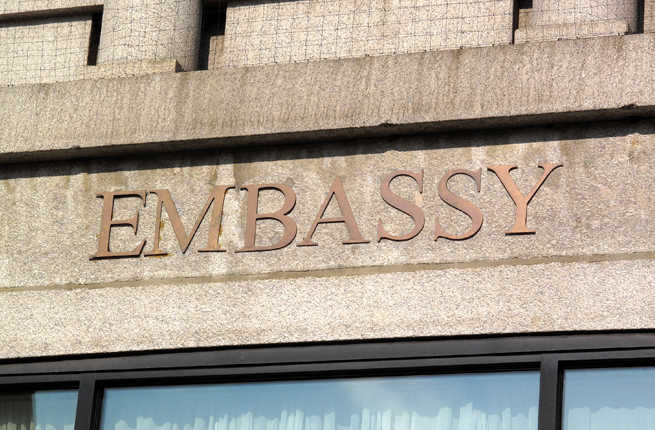
My mother’s planned visit to New York a few months ago began with a broken down bus and ended with a missing spleen. What should have been a straightforward trip to New York from Perth via Dubai instead involved a dramatic side trip to Russia and a forced return to Perth (via a three-day delay in Dubai). And what should have been a vacation filled with massages, Broadway shows, boozy brunches, and Clipper ship cruises of New York Harbor was instead filled with important life lessons … like, it’s not easy to get an emergency visa to Russia; you shouldn’t laugh when your mother tells you there's a drug dealer living next door; the bus in Dubai does not actually stop at all advertised stops; and when your mother drives over the roundabout—instead of around it—she is probably not fine to drive. We will laugh or cry about it for years but there were also some concrete travel lessons to be gleaned from the experience. So, in the spirit of “that which does not kill us, makes us stronger travelers,” I thought I’d share.—Jacinta O’Halloran

Lesson 1: Don’t Ignore Your Body
My mother had a headache she couldn’t shake for a few weeks leading up to her trip. It was that glass of wine … She was tired … She didn’t drink enough water yesterday … It was nothing.
It certainly wasn’t her body trying to bring attention to the fact that she had high blood pressure.
She'd never had high blood pressure or indeed, any health issues, so there was a good chance it really was just an expression of an imbalance of water and wine in her body. Only it wasn’t. So when her trip to the airport was preceded by a few weeks of daily harassment from the angry drug dealer living next door (who threatened her every time she left the house because she’d reported both his wild parties and his equally wild 13 cats); then delayed by a broken down bus that she was taking so she could save on long term parking; and then salved with several cups of strong coffee once she finally made it to the departures lounge, she ended up feeling dodgy on the first leg of her trip (Perth to Dubai), and then dangerously dodgy on the second leg (Dubai to New York). In fact, she was so unwell and her blood pressure was so high that the flight attendant held her hand and cried as two doctors onboard declared a medical emergency and redirected her flight to Moscow …where she was left for dead (her words).
Hard Lesson: We all get pre-travel jitters or anxiety that we will forget our passports or the pilot will forget how to fly but you should not ignore unusual or persistent symptoms before you travel. See your doctor. Get the all-clear or any meds you might need before you travel. Your body, and fellow passengers, will thank you for it. And don’t drink coffee before you fly.

Lesson 2: Pack Your Carry-On Bag With A Desert-Island Mentality
In the—hopefully, unlikely—event that you are ejected from your flight for being a medical nuisance and are left for care in a foreign country where you don’t speak the language … and it’s the middle of the night … and the persistent camera flash of the immigration officer looming over your stretcher makes you throw up on yourself, repeatedly … and there’s no blanket in the ambulance, it’s a small comfort to have a few useful items in your carry-on bag. Think: a complete change of clothes, a pair of pajamas, and a phone charger. Your bathroom bag is nice, too, or at the least stash the airline’s complimentary travel kit in your bag once they hand it out so you can brush your teeth, comb your hair, and moisturize your elbows (because when do you ever have time to do this?) while you wait five days to be allowed to leave Russia. Also, pack any necessary medications in your carry-on (including OTC painkillers). Bonus items of use include wipes, snacks, printed contact info for friends/family in case your phone dies or someone needs to make a call on your behalf, and a book … because Russian TV is in Russian.
Hard Lesson: Let’s be honest, we’ve all packed our carry-ons with all the stuff we can’t fit in our checked bags but it pays to be more thoughtful about what goes in which bag. Consider your carry-on bag as the bag you will live out of in an emergency. In short, pack practical and necessary stuff here.
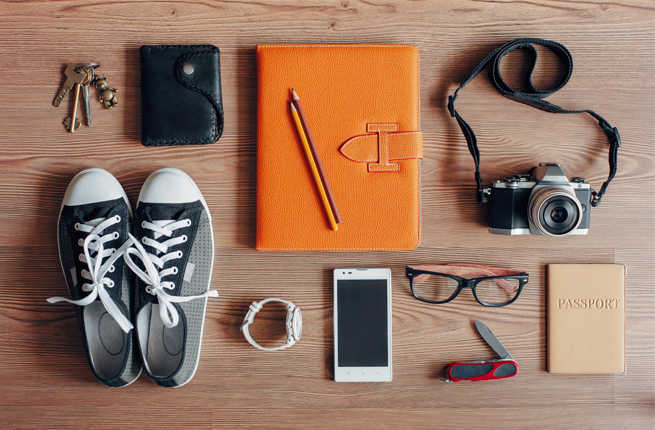
Lesson 2.5: Pack Your Personal Bag as If You Plan to Return From That Desert Island
Please, don’t pack your house keys in a pocket in the inside of your checked bag thinking “Woohoo! I won’t need these for a while!” because, time flies when you’re having fun/a medical emergency, and who knows? Your bag might get misplaced say, after a plane crash-lands in Dubai right before you leave (sigh, yes, this happened) causing baggage-carousel confusion and an extra five days of travel for your bags. At the end of a trip, especially one that goes wrong, you really just want to get into your own bed without any drama. Also, it might be the straw that breaks your daughter’s back or causes her to roll her ankle while launching over that imposing new fence you installed to keep your drug-dealing neighbor out.
Just trust me and keep your keys handy, okay.
Hard Lesson: Going on vacation is fun but all good things (and thankfully, bad!) come to an end. Take a minute before you leave to make sure the essentials you need upon return—house and car keys, local currency and credit cards, etc.—are with your person, not your waylaid bag.
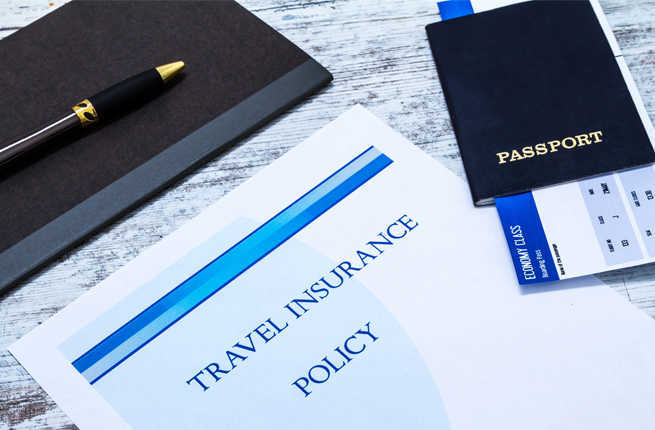
Lesson 3: Ensure You Know Your Insurance
In all my years of travel, I’ve somehow never lost bags, suffered an illness during travel, or needed to cancel or change my tickets last minute, so I’ve never felt the need to overthink the insurance. When I booked my mother’s flights to New York as a gift, I added the Comprehensive Travel Protection ($100) offered by Expedia at purchase. Fortunately, this covered the cost of the original flights and medical expenses incurred abroad. Unfortunately, there was a lot it did not cover, including a hefty airline-imposed charge to change her original flight to be able to return home and a doctor-mandated stop in Dubai on the way back from Russia to Australia to allow her blood pressure and body time to recover between long flights (she still had a minor heart attack on the last leg). While I’m at it, my flights or expenses incurred in rushing to meet my mother and escort her home were not covered. I admit that I didn't actually expect my expenses as caregiver to be covered, but it didn’t make their rejection any less frustrating. Going forward, my mother will need to carefully consider her travel insurance coverage and she will also need to declare her medical issues in advance.
Hard Lesson: Your travel luck might run out, so don’t take it for granted. It’s worth spending more time and money for travel insurance on long-haul flights, especially if you have a medical condition or have had an emergency abroad. Insuremytrip.com is a good resource to compare insurance plans and offerings. Also, once you do purchase insurance, be sure to send a copy of your information to a family member or friend so they can act on your behalf if necessary. Most importantly: keep all of your receipts, and if they’re in another language, make a note on the back of each receipt so that you know what it’s for. Careful filing and note-taking are not easy in an emergency situation, but it’s helpful when you try to put the pieces together for the frustrating claims process later. If you have a working phone, take pictures of every receipt as a back-up.
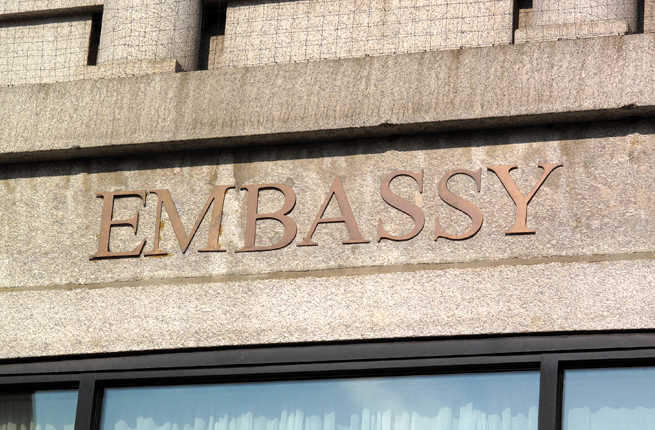
Lesson 4: Exercise Your Diplomacy
When I heard that my mother was in an ambulance on her way to a hospital in Moscow, I immediately notified her travel insurance company. They thanked me for calling and offered to fax medical forms to my mother at her hospital in Russia. Then they told me to contact them again once the emergency was over. That’s it. No advice or help. Just “talk soon!” I’m embarrassed to admit that I naively thought they would step in and actually help with the emergency. Not their job! Also, not the airline’s job. While it was the airline who “left her for dead” in Russia, it was impossible to get them to assist in her care while there. If, like me, you are not able to obtain an emergency visa to meet your mother in Moscow within five days, you need to get in touch with a local embassy while you work on Plan B. The Australian Embassy in Moscow was invaluable in our emergency. They arranged for an English-speaking doctor to visit my mother onsite every day until she could travel. This doctor prescribed medications and accompanied her to a “better hospital than the first one she had visited” where she received the care she needed to eventually get her back on a plane and on the way home. Above and beyond these important duties, the representative from the embassy made her feel that she was not alone and also helped her translate her request for toast!
Hard Lesson: It’s a cold hard world, but your embassy has your back. In a travel emergency, get in touch with your embassy on the ground. At the very least, they will advise you and provide on-the-ground contacts for medical or legal care. They can also get you toast.
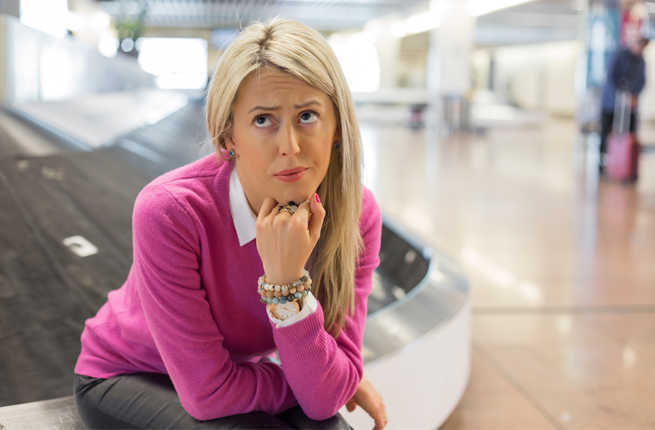
Lesson 5: Keep Your Tags and Itemize Your Bags
While I would love to say that a plane crash-landing in Dubai the day before our scheduled departure and the subsequent confusion, blood-pressure elevation, delayed flights and baggage carousel dysfunction was the climax of my mother’s epic adventure, it barely rated. When we arrived at Perth to hear that our bags did not arrive, we simply laughed and said “Of course!” The week that followed—which is all a blank to my then heavily-medicated mother—included tests that revealed severe Celiac disease, high blood pressure, and a “missing spleen” (conspiracy theories include a Russian doping scandal); run-ins with that neighboring drug dealer and his 13 cats; and a mother-daughter argument about being “FINE!” to drive to the hospital that involved some not-so-fine driving on sidewalks and over—not around—roundabouts. With all that going on it was a relief to focus on our missing luggage. At the airport, we waited in line for an hour to report our missing bags but we were not assigned a claim number. Mistake. You kind of need that. Luckily, I had kept our luggage receipts from check in, which was a good thing because the airline had no record of our bags and we had no claim number. I called daily to check on them and was “assured” that they were on their way even if they still had no idea where they were. Long story short, the bags showed up at the house five days later. All knickers accounted for.
Hard Lessons:
1. Don’t throw out the luggage tags/receipts you get when you check your bags. They are your only defense if your bags get sidelined or all travel-hell breaks loose, and some airports spot-check those tags when you are exiting the baggage claim area to ensure you are not making off with someone else’s Louis V. case. 2. Insert contact information and a photocopy of your itinerary in your checked luggage so that the airline can contact you in the event that your bags are AWOL. 3. You’re tired but you really do have to wait at the airport to file a claim for a missing bag. Get a claim number and find out how to follow up on your case and how to track your missing luggage. 4. Take the time to itemize or photograph what you pack in your bag before a long haul trip with multiple connections; it seems Type A but it will be A for Awesome when it comes to filing a claim for damaged or lost luggage.

Lesson 6: Check in With Your Bank
My mother’s trips had its ups—basically just when the airplane flew that way—and it had its downs, including but not limited to a diverted flight, a panicky few days in Russia, and a bus tour in Dubai that did not stop at all assigned stops (waiting in 120 degree heat for a bus that isn’t coming is not as cool a way to kill time as it seems … however, it is a good way to almost kill your mother). Once we finally got my mother home to Australia and under medical supervision, we got to test the efficacy of her blood pressure medication almost immediately when we found out that her debit and credit cards had been hacked! While she had notified the bank and credit card company of her travel plans before she left, with all the drama of her travels, she had not checked in on her bank account along the way. So she found herself broke as well as battered and having to dispute charges to regain her losses. On the upside, it made for a dramatic ending to her story!
Hard Lesson:
Check on your accounts while you travel. Don’t wait for a fraud alert—these are sometimes suspended while you travel or confused by your already unusual behavior—to interrupt your fun, just make a point to log on to your account periodically just as you would at home. Consider opening a separate account and credit card, just for travel purposes and with just the funds you plan to use on your travels, so that if someone does get a hold of your details, they can’t entirely wipe you out. Also use only ATMs located at a bank as they are supervised and less likely to be targeted by thieves with card readers.



